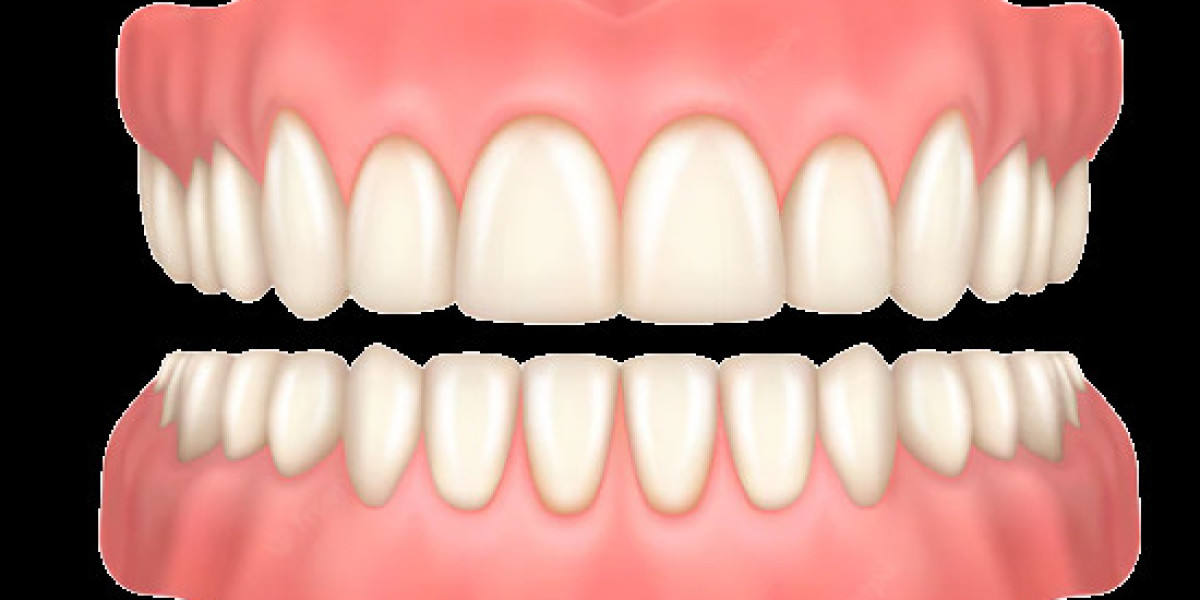This comprehensive guide explores everything you need to know about dentures, including their types, benefits, costs, and maintenance tips.
What Are Dentures?
Dentures are removable prosthetic devices designed to replace missing teeth and surrounding tissues. They restore chewing ability, improve speech, and enhance facial appearance by preventing the sagging of facial muscles. Modern dentures are designed to look natural and feel comfortable, making them a popular choice for individuals with missing teeth.
Types of Dentures
There are several types of dentures available, each catering to different dental needs:
Full Dentures
Also known as complete dentures, these replace all the teeth in the upper or lower jaw. They rest on the gums and are held in place by suction or adhesive. Full dentures are typically recommended for individuals who have lost most or all of their teeth.
Partial Dentures
Partial dentures are used when some natural teeth remain. They consist of replacement teeth attached to a gum-coloured base, held in place by metal or acrylic clasps that connect to existing teeth. Partial dentures help maintain alignment and prevent remaining teeth from shifting.
Implant-Supported Dentures
These dentures are secured by dental implants, providing a more stable and comfortable fit. They offer better chewing efficiency and prevent bone loss, making them an excellent option for those looking for a more permanent solution.
Immediate Dentures
Immediate dentures are provided on the same day teeth are extracted, allowing patients to maintain function and appearance while their gums heal. They may require adjustments as the gums shrink over time.
Overdentures
Overdentures fit over a few remaining natural teeth or implants, providing improved stability and preserving jawbone structure. They offer a balance between traditional dentures and implants.
Benefits of Dentures
Dentures provide numerous advantages for those with missing teeth:
Restored Functionality – Dentures enable better chewing and speech, enhancing overall quality of life.
Enhanced Aesthetics – They provide a natural-looking smile and support facial muscles, preventing a sunken appearance.
Improved Confidence – Replacing missing teeth helps individuals feel more comfortable and self-assured in social situations.
Cost-Effective Solution – Compared to implants, dentures are a more affordable tooth replacement option.
Customised Fit – Modern dentures are designed for a personalised fit, ensuring comfort and ease of use.
How Much Do Dentures Cost?
The cost of dentures varies based on the type, materials used, and location. On average:
Full Dentures: £500 - £2,500 per arch
Partial Dentures: £300 - £1,500
Implant-Supported Dentures: £1,500 - £5,000
Immediate Dentures: £600 - £2,000
While dentures are an investment, they significantly improve oral function and confidence. Some dental insurance plans may cover part of the cost.
How Are Dentures Made?
The process of getting dentures involves several steps:
Initial Consultation – Your dentist assesses your oral health and discusses suitable denture options.
Impressions and Measurements – Moulds of your gums and remaining teeth are taken to create a custom fit.
Denture Fabrication – The dentures are crafted in a dental lab using acrylic, metal, or flexible materials.
Fitting and Adjustments – The dentist ensures the dentures fit comfortably and makes necessary adjustments.
Final Placement – Once the fit is perfected, the dentures are placed, and you receive care instructions.
How to Care for Dentures
Proper denture care is essential for maintaining their longevity and oral hygiene:
Clean Daily – Brush dentures with a soft-bristle brush and mild denture cleaner to remove plaque and food particles.
Soak Overnight – Keep dentures in water or a denture solution to maintain their shape and moisture.
Handle with Care – Avoid dropping dentures as they can break easily.
Regular Check-Ups – Visit your dentist for adjustments and to check for signs of wear.
Maintain Oral Hygiene – Clean your gums and any remaining teeth to prevent infections and gum disease.
Common Issues with Dentures and Solutions
Some individuals may experience initial discomfort when wearing dentures. Common issues include:
Slipping or Loose Fit – Use a denture adhesive or visit your dentist for adjustments.
Sore Spots or Irritation – Rinse with warm salt water and allow time for your mouth to adjust.
Difficulty Eating – Start with soft foods and gradually introduce firmer textures.
Speech Changes – Practice speaking aloud to get accustomed to your new dentures.
Are Dentures Right for You?
Dentures are a great option for individuals who:
Have lost multiple or all teeth
Want a cost-effective tooth replacement solution
Prefer a non-surgical option (except for implant-supported dentures)
Are looking to restore their smile and oral functionality
However, those considering a more permanent and natural-feeling solution may opt for dental implants instead.
Conclusion
Dentures offer a reliable and affordable way to replace missing teeth, improve oral function, and restore confidence. With advancements in dental technology, modern dentures provide a more comfortable and natural look than ever before. If you are considering dentures, consult with your dentist to explore the best option for your needs and ensure a comfortable, well-fitting solution for your smile.







